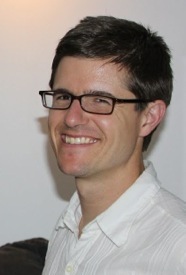Most of us enjoy eating fish and plan to continue eating fish into the future. But which local fish will be available in New Jersey? How will summer flounder and hake populations on the northeast continental shelf change as our climate warms and fisheries practices adapt? We currently do not know the answer to these questions, but we plan to learn more over the next four years thanks to a new grant announced by the NSF.
A Rutgers team, led by Malin Pinsky, assistant professor in the Department of Ecology, Evolution, and Natural Resources at the School of Environmental and Biological Sciences (SEBS), will soon begin its research on fisheries and coastal communities in the northeastern United States under a $1.1 million award from the National Science Foundation (NSF). This award is one of only nine national awards for the year by the Coastal SEES Research Program at NSF.
This project involves close collaboration with the National Oceanic and Atmospheric Administration (NOAA). Other Rutgers members include co-investigators Kevin St. Martin, professor in the Department of Geography in the School of Arts and Sciences, and Bonnie McCay, distinguished professor in the Department of Human Ecology at SEBS.
The Rutgers study will focus on assessing the sustainability of fisheries by researching the long-term adaptation and sustainability of marine populations in the context of climate change and fishing. The research team will explore the social, economic and regulatory factors that affect the responses of fishing communities as fish migrate to new ocean areas in response to changing oceans, climate change as well as fishing practices. Additionally, they will assess how human responses to changing fish distributions will impact the sustainability of the fisheries. Both fisheries science and social sciences research will inform their work.
“With this research, we hope to help chart a way forward in a warming world for both marine life and the people that rely on it. We already know that fish are on the move, but neither natural science nor social science alone will be enough to guide effective conservation and management in the future. This grant provides a fantastic opportunity for us to work together,” said Pinsky.
Today, over 123 million people, or over one-third of the US population, live in a coastal region and the NSF Coastal SEES—or science, engineering and education for sustainability–Program focuses on research questions that address the sustainability of coastal regions. This research can also inform other fisheries around the country.
For other awards in the NSF Coastal SEES program, see the NSF press release.


